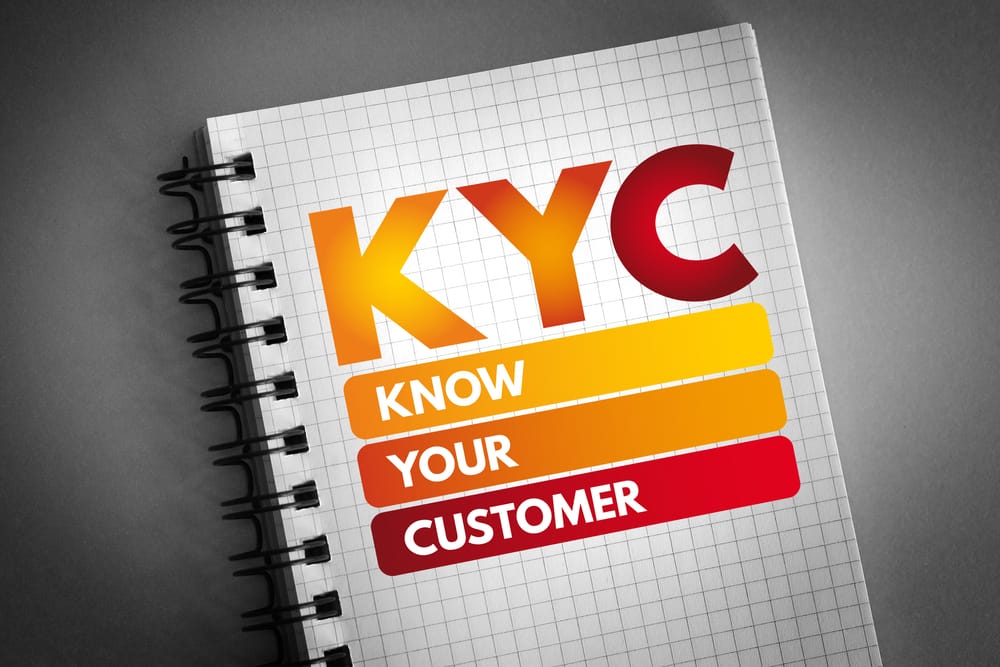Stepping Up Your AML Practices in 2023
As we ease into 2023 and reflect on the ever-evolving world of digital security, there’s no denying that fraudsters have become incredibly advanced in their approach—an estimated 90% of money laundering crimes still go undetected—making AML protocols more important than ever.
Anti-Money Laundering (AML) protocols and software have become essential in order for organizations to stay compliant with complex legislation, protect sensitive data (for both businesses and stakeholders), and streamline operations. Partnering with a robust AML software provider like iComplyKYC is one of the best ways to protect your organization and avoid costly fines from regulators while also ensuring you have the resources needed to quickly access vital information that you can trust.
Below, we’ll take a closer look at the core components that inform a strong AML process, as well as the benefit of partnering with a vetted software provider like iComplyKYC. Read on to learn more!
What Do AML Protocols Do?
The core mission statement of anti-money laundering programs and protocols lies in their name: to stop fraudulent practices and criminals from infiltrating our business practices and reduce the global harm caused by such activities in the process. Money laundering may seem like a “victimless” crime, but the reality is it has ties to much darker practices like human trafficking, terrorist funding, the drug trade, and more.
With the right protocols and practices in place, your organization can significantly lower the risk of unintentionally partnering with fraudsters, as well as be able to (re)evaluate your business relationships to build adequate risk profiles for all clients. Standard AML components include:
KYC Protocols
Know Your Customer (KYC) protocols are a must for modern businesses, from both a compliance and an operational standpoint. Having integrated tools and programs that make it easy to identify, verify, and screen prospective employees, clients (existing and new), and other individuals your company interacts with helps remove any unnecessary and often unpleasant mysteries—allowing you to securely maintain your day-to-day operations.
Customer Due Diligence (CDD)/Enhanced Due Diligence (EDD)
Similar to KYC, both CDD and EDD are dedicated to digging a little deeper and getting to know the specifics about who you’re interacting with. From previous risk factors like known associates and ties to illegal operations to current beneficial points of partnership, being able to go below the surface of your customers’ data with ease is essential to building trust with your client base while also protecting your organization from unwanted risks and penalties.
Name Screening
How do you know that the “John Smith” you’re evaluating is the same “John Smith” you need to verify? Integrated name and identity screening is a core component of AML protocols, allowing you to mitigate the challenges of false positives and accurately assign details to new individuals and entities as needed.
Transaction Monitoring
Catch potential risks before they can evolve into active problems by monitoring key transactions and having dedicated living documentation that is consistently updated. Routinely monitoring and vetting transactions is not only required by AML standards but also enables the ability to quickly spot potential identity theft or fraudulent transactions as soon as possible. Transaction monitoring is crucial for protection and efficiency and is a vital part of any AML process.
Suspicious Activity Monitoring
Finally, AML regulation requires the reporting of any activities deemed illicit or suspicious. While manual review and implementation can make it difficult to maintain updated records of client information, having a dedicated program like iComplyKYC in place can make it simple to uphold your end of the law, all while staying on top of crucial data updates necessary for the integrity and success of your business.
Though many of these general AML practices continue to be human led and initiated across the workforce, many leaders in the financial, technology, and securities sectors have come to realize that having automated and trusted software is a far more reliable (not to mention convenient) form of protection.
End-to-End AML Solutions With iComplyKYC
At iComply, we know the value of proven AML protocols and processes. Our award-winning, truly end-to-end KYC + KYB platform makes sure your business has all jurisdictional requirements covered—with the help of our modular suite of KYC products, streamlining your identification and security processes is simple. As one of the most versatile, efficient, and dependable solutions on the market, iComplyKYC is your leading choice for AML software, as well as all your KYC needs.
Book a demo with our team today to learn more about iComply’s AML solutions and discover how our platform can support the needs of your business or organization.
learn more
Is your AML compliance too expensive, time-consuming, or ineffective?
iComply enables financial services providers to reduce costs, risk, and complexity and improve staff capacity, effectiveness, and customer experience.
Request a demo today.
2025 Outlook: Data Privacy and Security in KYB, KYC, AML Compliance
In today’s rapidly changing digital landscape, data privacy and security are more crucial than ever for compliance teams. As regulations tighten and cyber threats evolve, businesses must prioritize innovative solutions. Enter edge computing, a game-changer for KYC,...
New FinCEN Geolocation Rules: How iComply’s Latest Update Keeps You Ahead
FinCEN’s New Geolocation Rules: How iComply Can Help
Stay ahead of FinCEN’s stricter KYC requirements with iComply’s advanced geolocation and biometric verification technology. Enhance compliance, prevent fraud, and maintain a seamless user experience.
A Quick-Start Guide to AML Compliance
Building a Robust AML Program: A Compliance Officer’s Guide
Learn how to streamline AML compliance with digital onboarding, automated SAR submissions, secure record keeping, and a risk-based approach.
The Future of KYB: Streamlined Verification for Seamless Business Transactions
KYB Made Easy: Streamlining Business Verification
Discover how modern KYB technology is simplifying business verification, making it faster, more secure, and user-friendly. Learn how automated checks, biometric verification, and real-time compliance can benefit your business.








